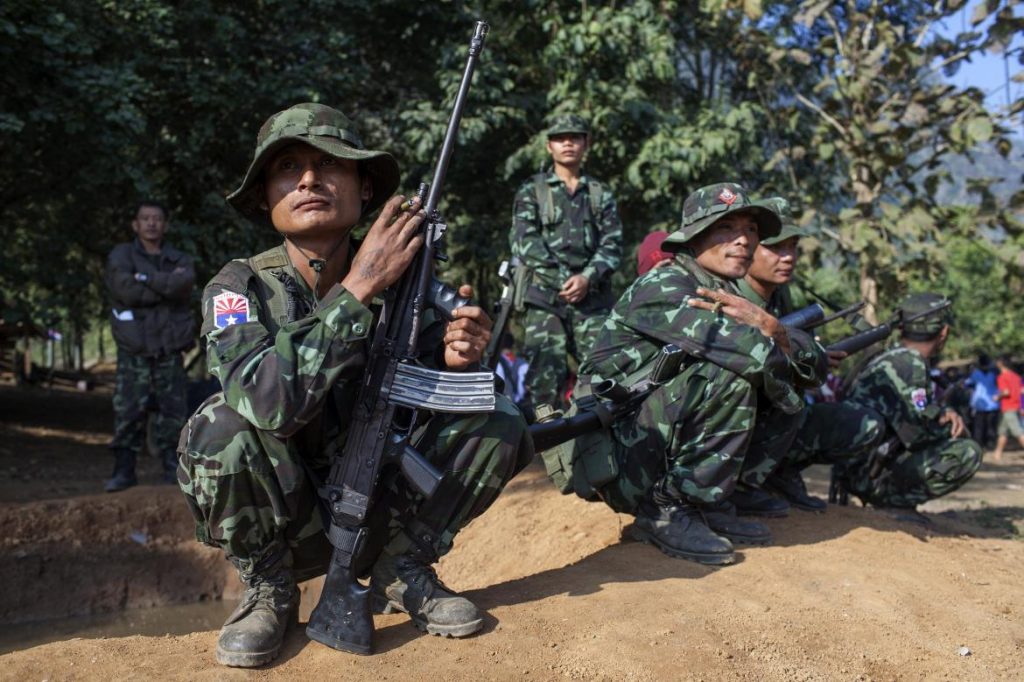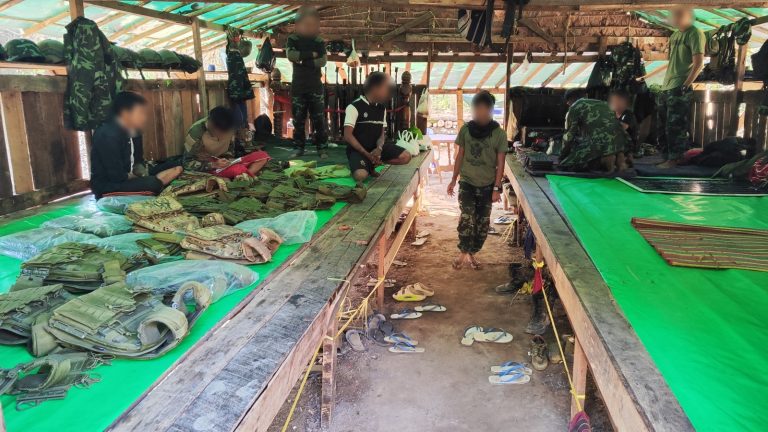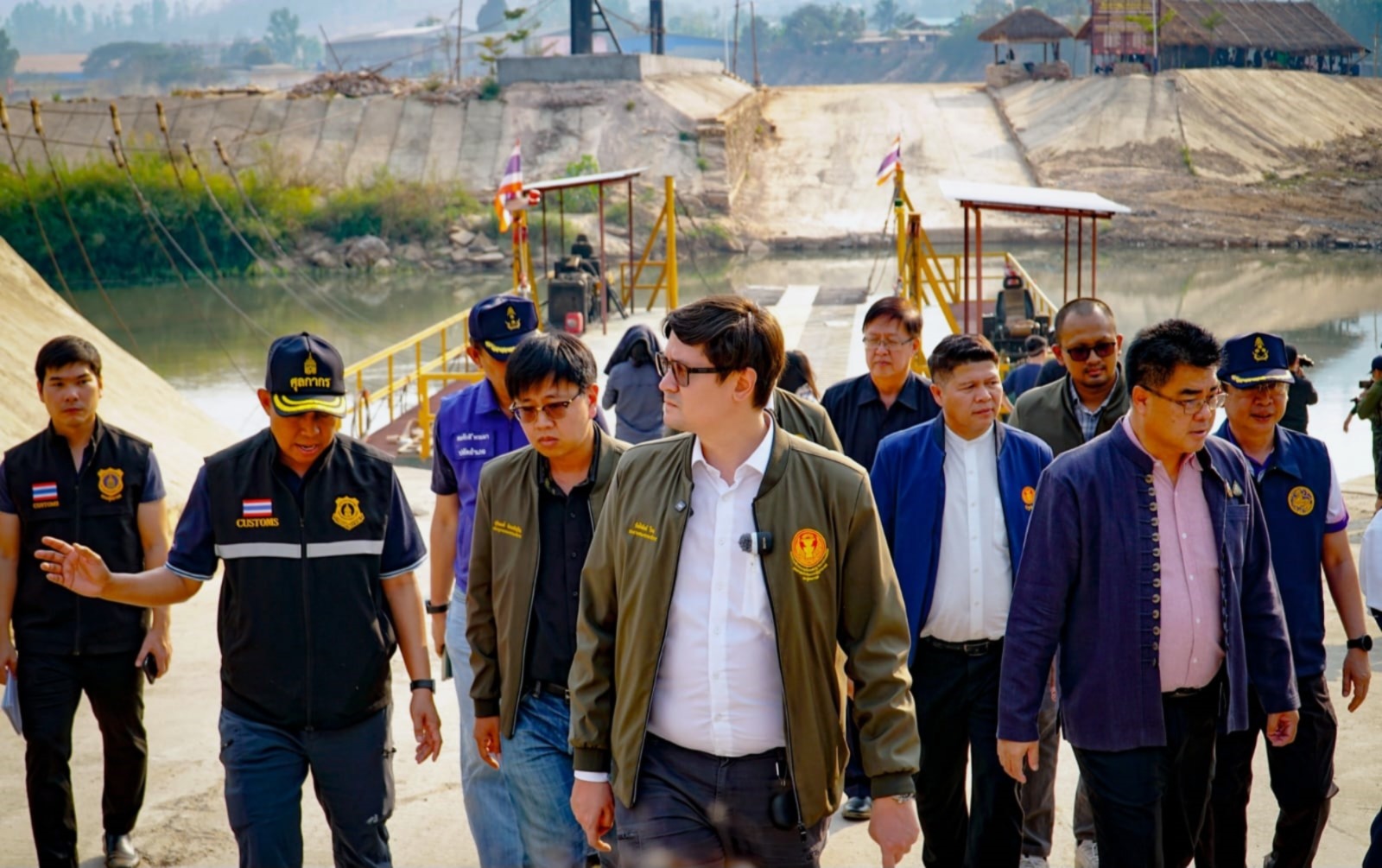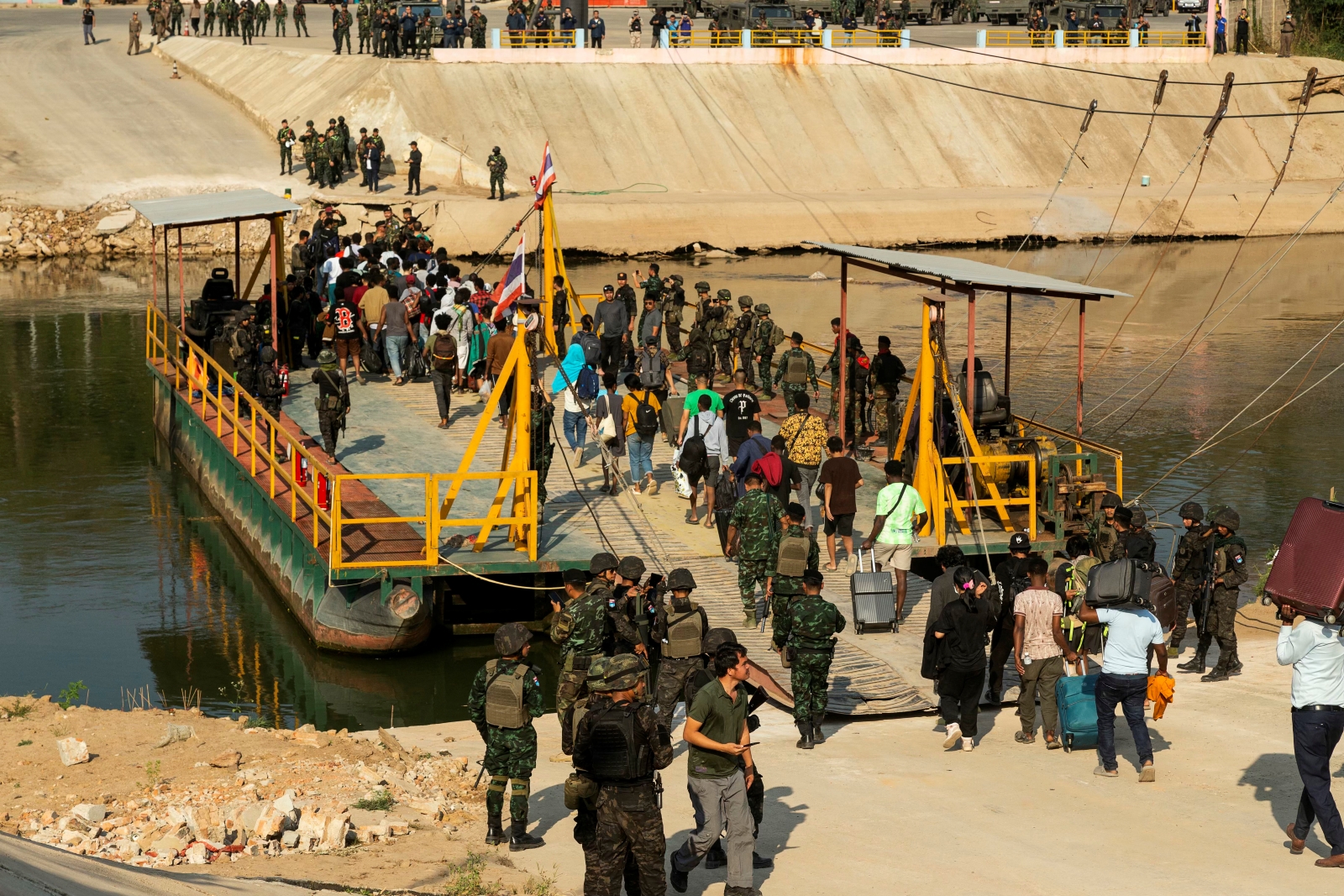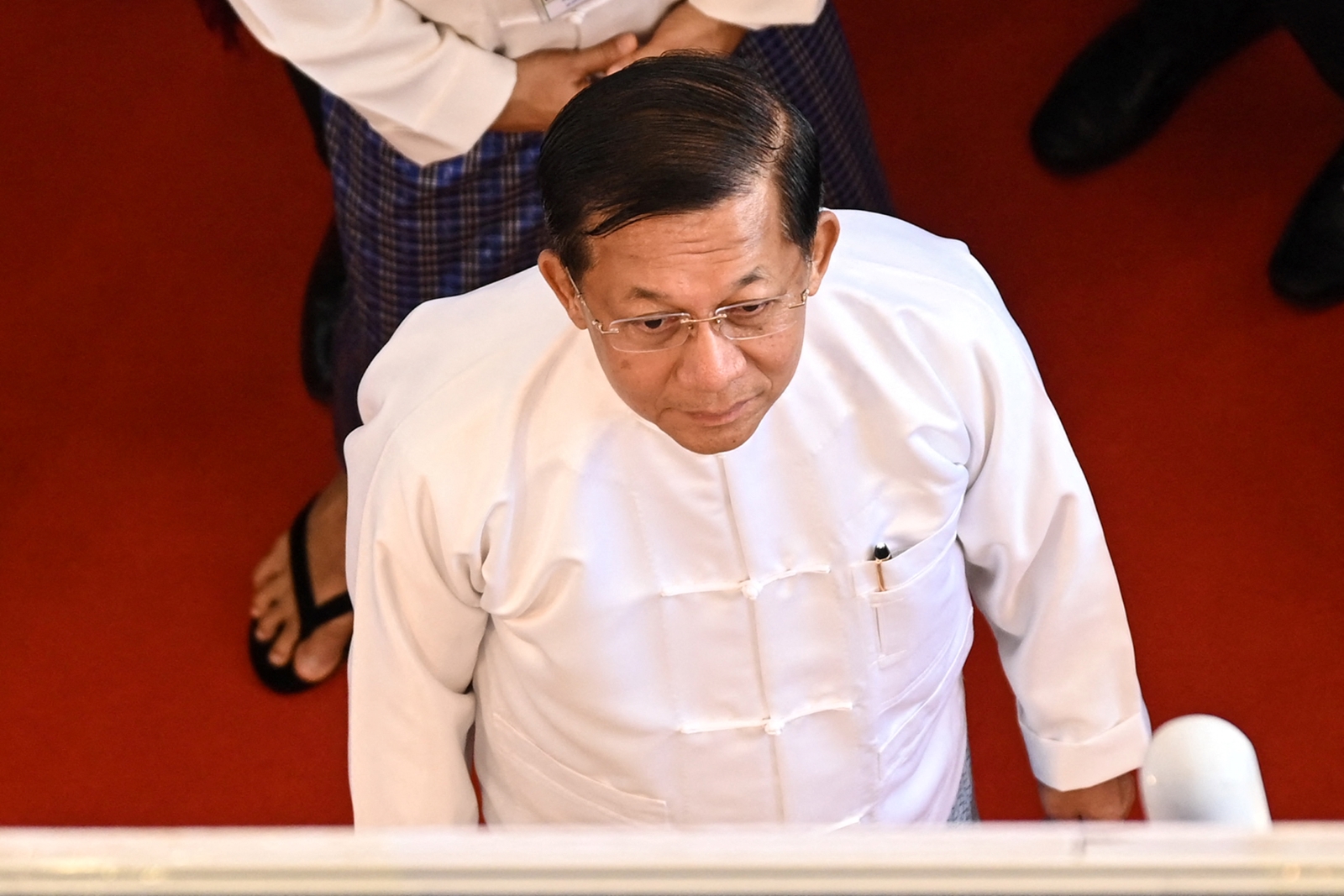By SEAN GLEESON | FRONTIER
YANGON — A coalition of Karen civil society groups say Myanmar’s military has violated the terms of the Nationwide Ceasefire Agreement after moving troops into the north of Hpapun Township near the Thai border last week, in an incursion that has reportedly displaced over 1,500 villagers.
The Karen Peace Support Network says the deployment has precipitated the “largest forced displacement of civilians” in Hpapun since the signing of an earlier bilateral ceasefire in 2012 brought a supposed end to decades of civil conflict in Kayin State.
“Villagers now fear that their homes will be ransacked and burned,” said a Friday statement from the KPSN. “Burmese soldiers have already shot two of the villagers’ buffalo. Displaced villagers are now facing a humanitarian crisis as they are running low on food and medicine.”
The KPSN believes the Tatmadaw have mobilised inside the territory, under the de facto control of the Karen National Liberation Army, to expand a local road network, which villagers fear will be used to solidify military control over the area.
Support more independent journalism like this. Sign up to be a Frontier member.
Clashes between the Tatmadaw and KNLA last week prompted the evacuation of 15 villages in the Ler Mu Plaw and Kay Bu village tracts. The KPSN alleges that Tatmadaw troops also shot at villagers in Ler Mu Plaw on the evenings of March 7 and 8.
The political wing of the KNLA, the Karen National Union, was one of eight original signatories for the national ceasefire accord in October 2015. Under the terms of the NCA, the Tatmadaw is required to seek permission before entering territory under the jurisdiction of non-government signatories.
Concerns are mounting over a lack of progress in political negotiations through the government peace process, despite the highly-feted signing of the NCA by two additional armed groups in February.
The government has not staged a Union Peace Conference since May 2017 and there is no clear timeline for the next conference, despite a commitment in the NCA to hold the forum for national political dialogue with the accord’s signatories every six months.
Decades of conflict between the KNU and the military saw a gradual collapse of KNU strongholds during the 1990s and a litany of human rights abuses against the civilian population in Kayin State and elsewhere. Around 100,000 refugees from the conflict remain in Thailand.
A sizeable minority of the KNU leadership opposed participation in the 2012 and 2015 ceasefires, although anti-ceasefire members of the group’s executive committee were voted out in the most recent KNU congress last year.
Last year, a report from The Asia Foundation warned that the KNU faced an “inevitable” return to conflict unless there was substantive progress on political dialogue with the government.
The KPSN demanded an immediate cessation of “provocative actions” and withdrawal by the Tatmadaw, an investigation into the incursion and humanitarian aid for displaced villagers.


